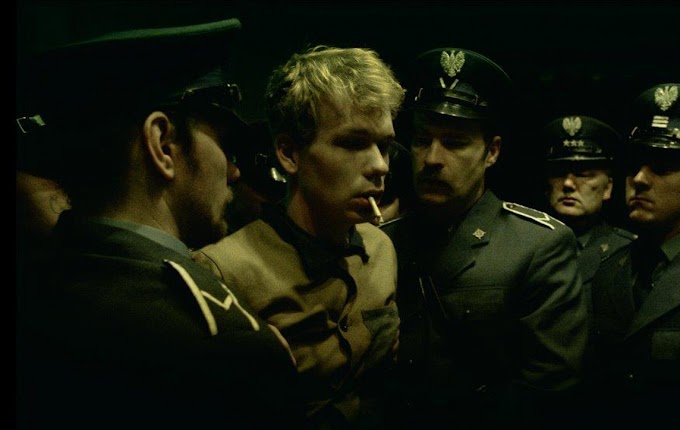Undergoing a test to go beyond oneself, we will glimpse salvation or we will be able to consider it. Hence the profound mysticism underlying the work. His inner devastated heroes will not be completely changed by experience, but transcended in one way or another.
In an undetermined country, the Zone is a mysterious, dangerous region, where only the Stalkers, smugglers, dare to venture. One of them tries to take a writer and a physicist inside this Zone, to a room where their dearest wishes can be fulfilled.
Place of all fantasies and all legends, absolute taboo whose authorities forbid access and in which they do not even dare to risk themselves, the Zone fascinates. Who created this Zone? Why? Scary unknown, many did not come back. No rationality seems to have any hold on her. The rules of the most elementary physics do not apply where the straight line is not the shortest path and you cannot retrace your steps. But what do those who brave danger look for? «Happiness» supposes the Stalker. For it lets pass «those who have no hope any more; neither the good nor the bad, but the unfortunate.» He himself is one of those, left behind by society living only for the Zone. «I feel everywhere in prison» and the Zone is his refuge, his Eden, the only place where he feels he lives, what men have not defiled, the quietest place in the world, the space of last hope. Like a Conservative, he defends touching anything.
Tarkovski formally opposes the vision of a world in decay, polluted and sterile, filmed in a sickly sepia, to a green and wild Zone - where nature has overcome human enterprises, where cars, buildings are nothing but ruins invaded by the virgin grass - magnified by the use of a pure and soothing color. The music of Edouard Artemiev, a symbiosis of ancestral melodies carried by the breath of air and synthetic strings, contributes to the hypnotic atmosphere of the film.
Observing a unity of time, space and action, Tarkovski demonstrates the cinema’s ability to scrutinize life, without gross interference in its flow. In 144 shots, he invites us to penetrate with him the destiny of his characters, to follow them in their progress until the «most important moment of their life», to live this pilgrimage that relieves us of our arrogant certainties to find the dream, the magic and the faith. An ode to humility, to the power of the weak, Stalker invites us to rediscover our original substance, to imbue us with this sacred water that will make us less dry, to kneel, to lie down in the fresh herbs to contemplate in silence the unfathomable beauty rather than to challenge an already hostile world.
Tarkovsky gives birth here to a work that has sorely tried him. One year of filming was lost because of a bad emulsion in the laboratory. He who claimed that «the filmmaker belongs to the cinema and not the opposite» draws from the strength of his message the energy to return the film in its entirety with a fraction of the allocated budget, also assuming the role of decorator, and closing it within the required time.
Learning the faith, pleading for the rebirth of hope, metaphor the artistic creation, praising nature and those who suffer, Stalker is all that and much more. Its humanistic and metaphysical task make it a timeless and inexhaustible reflection, its aesthetic power and its poetic density a rare and confusing work, which makes us lose touch with reality to substitute it with a sublime, fragile and redemptive truth.
If there are films from which we do not emerge unscathed, from those of the Stalker dimension we never really emerge.




.png)

0 Comments